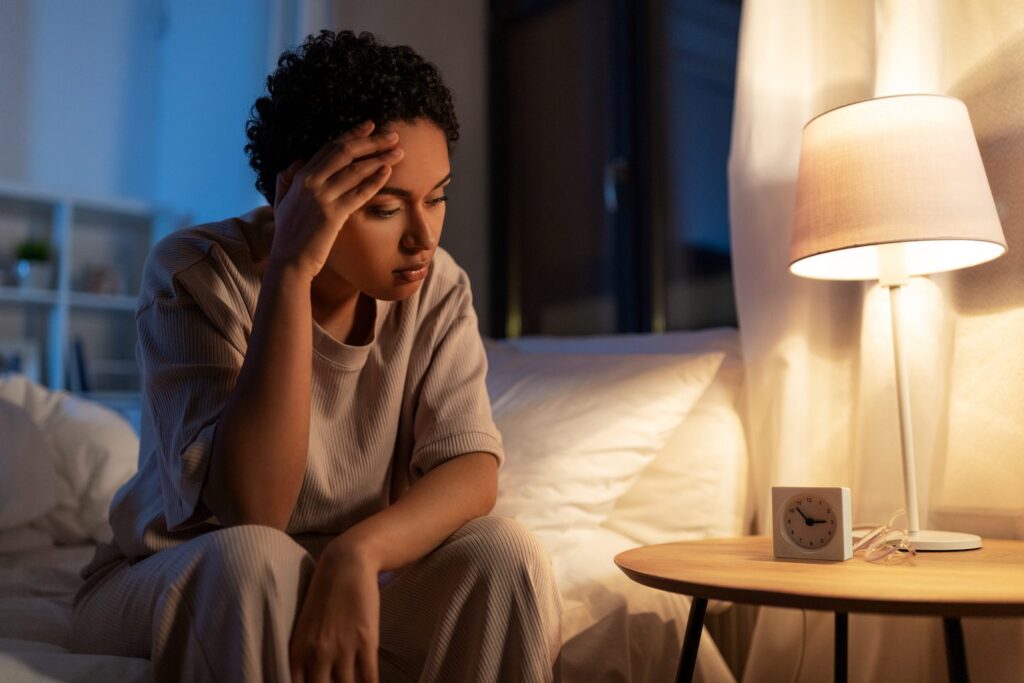Birth control pills are a popular and effective way to prevent pregnancy, but they can come with side effects. Some women report feeling more tired or sleepy after starting birth control, leading to questions about whether the pills affect energy levels.
Hormonal changes caused by birth control can influence the body in different ways, including sleep patterns and fatigue. But is birth control really the cause of sleepiness, or could other factors be at play?
Recommended: Does Birth Control Cause Dry Mouth?
In this blog, we’ll explore the link between birth control and c, the possible reasons behind it, and what you can do if you’re feeling more tired than usual.
Understanding Birth Control Pills and Their Effects

Birth control pills are medications designed to prevent pregnancy by regulating hormones. There are two main types: combination pills, which include both estrogen and progestin, and progestin-only pills. These medications work by preventing ovulation, thickening cervical mucus to hinder sperm movement, and thinning the uterine lining to reduce the chance of implantation.
Recommended: What Happens If You Take Expired Birth Control Pills?
They are effective in regulating the menstrual cycle, easing symptoms such as cramps and heavy bleeding, and can also improve skin clarity for some users. However, as they alter hormone levels, some individuals may experience side effects including nausea, headaches, and weight changes, along with mood swings and occasional fatigue or sleepiness.
Can Birth Control Pills Cause Fatigue and Sleepiness?
Some users report feeling more tired or sleepy after starting birth control pills, which may be linked to the hormonal changes these medications trigger. The hormones, particularly estrogen and progestin, can affect neurotransmitters that regulate mood and energy, potentially leading to fatigue.
However, not everyone experiences these side effects; individual sensitivity, the specific type of pill, and the dosage all play a role. It’s also important to consider that factors like stress, sleep quality, and overall health might contribute to feelings of sleepiness.
Other Possible Causes of Sleepiness While on Birth Control
Hormonal Fluctuations
Birth control pills alter estrogen and progesterone levels, which can impact neurotransmitters like serotonin and GABA. These changes may cause drowsiness or fatigue as the body adjusts to the new hormonal balance.
Recommended: How to Choose a Birth Control Method Without Side Effects
Nutrient Deficiencies
Some birth control pills have been linked to lower levels of essential vitamins and minerals like B vitamins, magnesium, and iron. Deficiencies in these nutrients can contribute to fatigue, weakness, and overall low energy levels.
Changes in Blood Sugar Levels
Hormonal contraceptives can affect insulin sensitivity and glucose metabolism, leading to fluctuations in blood sugar levels. Low blood sugar (hypoglycemia) can cause dizziness, tiredness, and brain fog.
Disrupted Sleep Patterns
Some women experience sleep disturbances when taking birth control, either due to changes in melatonin production or the body’s response to altered hormone levels. Poor sleep quality can lead to daytime sleepiness and fatigue.

Recommended: Family Planning for Women Over 30
Dehydration
Birth control pills can sometimes cause fluid retention, leading to dehydration if adequate water intake isn’t maintained. Dehydration can cause tiredness, headaches, and sluggishness.
Increased Sensitivity to Stress
Hormonal birth control may influence cortisol levels, which regulate the body’s stress response. Elevated cortisol can cause fatigue over time, especially if stress levels are high.
Underlying Health Conditions
Fatigue and sleepiness could also be symptoms of other underlying conditions such as anemia, thyroid imbalances, or chronic fatigue syndrome. Birth control pills may exacerbate these conditions, making symptoms more noticeable.
If persistent sleepiness occurs while on birth control, it’s important to monitor symptoms and consider discussing alternatives with a healthcare provider.
How to Manage Fatigue While Taking Birth Control
You can manage fatigue while on birth control by making healthy lifestyle adjustments and addressing possible underlying causes. Simple changes in diet, hydration, sleep, and stress management can help improve energy levels and overall well-being.
Recommended: Best Brush for Postpartum Hair Loss
1. Maintain a Healthy Diet
Consume a balanced diet rich in iron, B vitamins, and magnesium to prevent deficiencies that may contribute to fatigue. Include nutrient-dense foods like leafy greens, whole grains, nuts, and lean proteins.
2. Stay Hydrated:
Drink plenty of water throughout the day to prevent dehydration, which can cause sluggishness. Limit caffeine and sugary drinks to avoid energy crashes.
3. Get Enough Sleep
Aim for 7–9 hours of quality sleep each night. Establish a bedtime routine, reduce screen time before bed, and create a comfortable sleep environment for better rest.
Recommended: How to Sleep Better During Menopause
4. Exercise Regularly
Engage in light to moderate physical activity, such as walking, yoga, or stretching, to improve circulation, boost energy levels, and enhance mood.
5. Manage Stress
Reduce stress with relaxation techniques like deep breathing, meditation, or journaling. Chronic stress can worsen fatigue and disrupt sleep patterns.
6. Monitor Blood Sugar Levels
Maintain stable energy levels by eating balanced meals with protein, fiber, and healthy fats. Avoid excessive refined sugars and processed carbohydrates that can cause energy crashes.

7. Talk to Your Doctor
If fatigue persists despite these changes, consult a healthcare provider. They may suggest adjusting your birth control method or checking for underlying health conditions contributing to tiredness.
Recommended: Does Ovulation Make You Sleepy?
When to See a Doctor
Mild fatigue while on birth control is common, but if it becomes persistent or interferes with daily activities, it may be time to consult a doctor. Seek medical advice if you experience extreme tiredness that doesn’t improve with proper rest, nutrition, and hydration.
Other concerning symptoms, such as dizziness, headaches, mood changes, or irregular periods, could indicate an underlying issue. If fatigue is accompanied by signs of nutrient deficiencies, thyroid imbalances, or other health conditions, a doctor can help determine the cause and suggest alternative birth control options or treatments.
Conclusion
Fatigue while taking birth control can result from hormonal changes, nutrient deficiencies, or lifestyle factors. While making healthy adjustments such as maintaining a balanced diet, staying hydrated, getting enough sleep, and managing stress can help, persistent tiredness should not be ignored.
If fatigue continues despite lifestyle changes or is accompanied by other concerning symptoms, consulting a doctor is essential. Every individual responds differently to birth control, and finding the right option may require adjustments. Prioritizing overall well-being and seeking professional guidance can ensure both reproductive health and daily energy levels are maintained.
